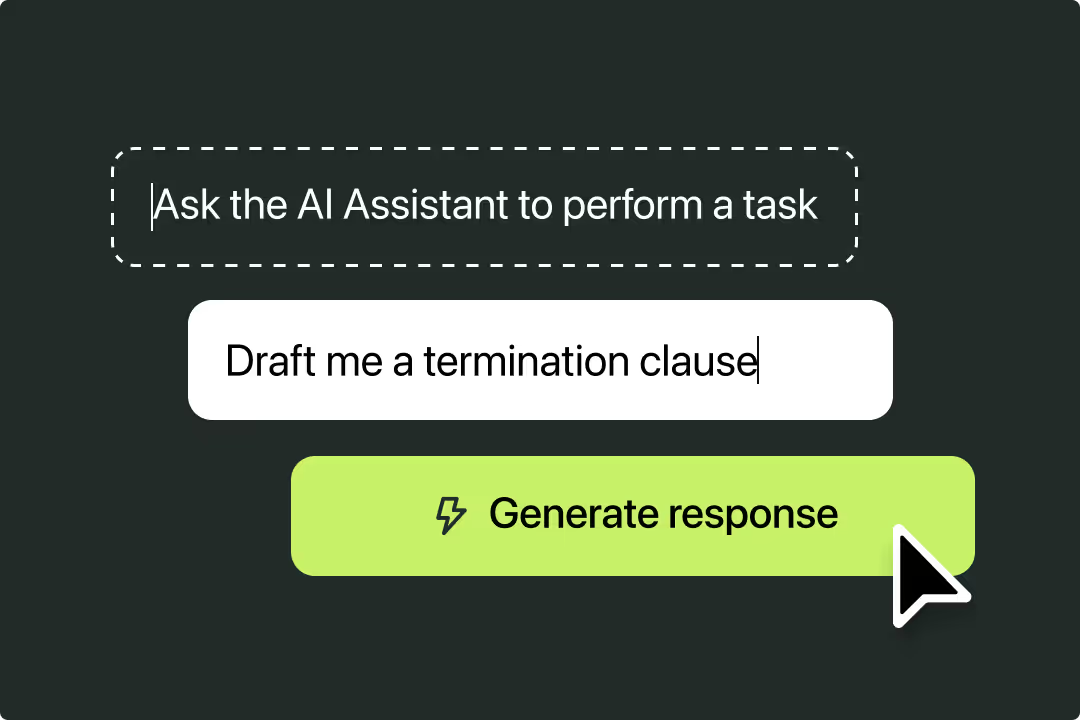Solutions
Customer Support
Resources
Coding for lawyers involves developing software, applications, or scripts that can automate repetitive legal tasks, analyze large volumes of legal data, and streamline inefficient processes.
Coding is the practice of creating sets of instructions that computers can follow to perform specific tasks or solve problems. The idea is that lawyers with coding capabilities will be able to improve their internal processes and work more productively by crafting their own code.
However, it’s important to remember that coding can mean different things to different people. For some, coding will mean developing production-quality products from scratch. For others, it will be far less technical.

With Goldman Sachs estimating that 44 percent of legal tasks could be automated, it’s not surprising that lots of lawyers are looking at the ways coding and legal tech can make their processes more efficient.
The legal industry has traditionally been one of the slowest to embrace innovation and tech. But this means that the legal industry will be playing a lot of catch-up when it comes to automation.
This isn’t a bad thing, though. It simply means that there’s a lot more to be gained for lawyers who embrace automation.
Lawyers also have many of the soft skills required for coding already. For example, much of the work done by lawyers involves analyzing information, solving problems, and having a keen eye for detail.
Coding involves most of the same skills, meaning that most lawyers are better equipped to learn how to code than they think!
Many people assume that you need to have completed a degree in computer science or programming to learn how to code. But that isn’t the case.
There are plenty of ways to learn how to code, with video tutorials and online courses making the skill more accessible than ever before. There are even coding courses designed specifically for lawyers. These teach legal professionals the basic principles of coding, enabling them to read, write, and understand basic code.
Coding can be a useful skill for lawyers to know, especially if they work in more technical roles where this is a prerequisite. However, it isn’t as important as many assume, nor is it necessary.
Creating, maintaining, and scaling code is a job in itself. It’s not realistic to expect lawyers, who are already among the busiest professionals, to become programmers too.
We’re lucky enough to have a wealth of no-code tools at our disposal today, so legal teams can benefit from legal automation without having to learn how to code themselves.
Advancements in generative AI, especially in natural language processing (NLP), have led to user-friendly interfaces, pre-built solutions, and no-code legal tools.
These recent developments have only improved access to the legal automation, with tools like Juro empowering legal teams to agree to contracts 10x faster than manual tools.
This means that, while impressive, coding for lawyers is far less important today than it was a few years ago.
The level of expertise needed to automate legal tasks has changed dramatically, with all lawyers now able to access the benefits of AI and automation, regardless of whether they can code.
But where does that leave lawyers, and what should they focus on now?
The landscape of law and technology is evolving rapidly. Tech literacy has become a fundamental skill for lawyers that want to keep up.
Understanding the basic principles of various technologies, software applications, and digital tools will prove crucial.
This includes understanding how legal tech solutions operate, their potential applications, and their implications for legal practice.
This knowledge is important for a few reasons:
{{quote2}}
Legal prompt engineering involves creating clear and specific instructions for legal tech tools and software to follow. This skill is essential for lawyers aiming to automate legal tasks effectively. Writing precise prompts ensures that the automation accurately performs the intended actions.
To find out more about prompt engineering in the legal industry, check out this guide to ChatGPT for lawyers, and this list of the best ChatGPT prompts for lawyers.
Testing legal automation use cases involves evaluating how automated processes perform in various legal scenarios. Lawyers should rigorously test legal tech solutions to ensure they meet specific requirements, are error-free, and adhere to legal standards and ethics.
Ultimately, lawyers need to ask themselves what legal AI (and other forms of legal tech) can comfortably automate, and what needs to be reserved for those with legal experience and expertise.

Juro’s no-code AI contract management software enables your team to create, execute and manage contracts 10x faster than traditional tools. This means that in-house legal teams can benefit from:
Juro is also renowned for its ease of use, with a user-friendly interface that makes business-wide adoption effortless.
With Juro, lawyers don't need to know how to code. They can manage contracts end-to-end quickly and efficiently, with no code required.
{{quote1}}
Want to find out how Juro's AI contract collaboration platform benefits businesses like yours? Fill in the form below to book a personalized demo.

Lorem ipsum dolor sit amet, consectetur adipiscing elit. Suspendisse varius enim in eros elementum tristique. Duis cursus, mi quis viverra ornare, eros dolor interdum nulla, ut commodo diam libero vitae erat. Aenean faucibus nibh et justo cursus id rutrum lorem imperdiet. Nunc ut sem vitae risus tristique posuere.

